Author Archives: Amy Kronish
April 5, 2011 by Amy Kronish
Feminists in Focus: Divorce, Deadbeat husbands and DVDs
Literally, “agunot” are women whose husbands have disappeared and it is unknown if they are still alive. This leaves the women in a form of limbo, since it is unclear if they are widows. In these cases, who can determine if they are able to remarry?
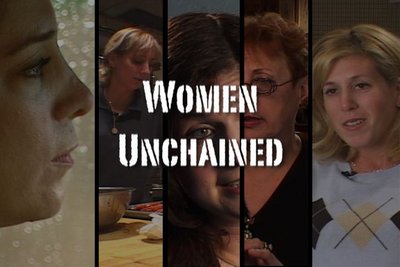 In contemporary usage, the term “agunot” has also come to include women who are unable to obtain a Jewish divorce or “get.” According to Jewish law, based on the Book of Deuteronomy, a woman cannot initiate a divorce; it must be granted to her by her husband. “Agunot” are hostages, chained to deadbeat husbands who are refusing to grant them a writ of divorce.
In contemporary usage, the term “agunot” has also come to include women who are unable to obtain a Jewish divorce or “get.” According to Jewish law, based on the Book of Deuteronomy, a woman cannot initiate a divorce; it must be granted to her by her husband. “Agunot” are hostages, chained to deadbeat husbands who are refusing to grant them a writ of divorce.
In the modern state of Israel, matters of personal status such as marriage and divorce are controlled by the ultra-Orthodox rabbinate which deals with divorce in an archaic manner. Some claim that the rabbinate is not interested in whether or not the husband is justified in withholding his agreement, since they do not interfere or compel these men to behave honorably. As a result and not surprisingly, men within Israeli society have learned how to exploit this advantage in the rabbinic courts. Some men are manipulative and cruel and withhold the divorce in an attempt at vengeance. Others do it for financial gain. Even if the man has moved on and already lives with another woman, he might not be interested in providing his wife with the same degree of independence. In fact, some men actually require that the woman denies her right to communal property, child support and alimony payments in return for his agreement to the divorce, thus actually forcing the wife to “buy” her divorce.
Recently, a new and informative documentary has been produced on the subject, called Women Unchained by Beverly Siegel and Leta Lenik. The women in this film live in both Israel and North America and are plagued by the blackmail being legitimized by the rabbinical courts. The film talks about the toll that is being exacted – the stress, money, turmoil, and emotional pain. An in-depth look at a complex subject, the film even presents the point of view of American law – a wife-beater should be brought up on criminal charges if he demands that his wife drop charges against him in exchange for a get, or if exorbitant amounts of money are demanded in exchange for a get. These are both illegal acts and criminal proceedings should be initiated. The film also provides a creative legal solution to the problem — people are beginning to use pre-nuptial agreements to stipulate how much money the husband must pay during the period of separation until a get is given. (more…)
- 3 Comments
March 13, 2011 by Amy Kronish
Feminists in Focus: Blurring the Line Between Reality and Fantasy in the films of Michal Bat-Adam
 Israeli actress, director and scriptwriter, Michal Bat-Adam, challenges our concepts of reality and fantasy by creating fine lines that delineate between the contemporary reality and memories of the past and between the actress’ real self and the role that she is playing. Bat-Adam has made ten Israeli feature films, all dealing with complex and intense relationships, unique friendships, and passionate loves of women, many of them personal films based on autobiographical elements.
Israeli actress, director and scriptwriter, Michal Bat-Adam, challenges our concepts of reality and fantasy by creating fine lines that delineate between the contemporary reality and memories of the past and between the actress’ real self and the role that she is playing. Bat-Adam has made ten Israeli feature films, all dealing with complex and intense relationships, unique friendships, and passionate loves of women, many of them personal films based on autobiographical elements.
In her most recent film, Maya, Bat-Adam takes a look at how an aspiring actress can become overly emotionally involved with her first role, to the point that it takes over her rational life and affects everything around her. Maya lands a major role in the theater, playing a young woman who goes crazy when her parents force her to have an abortion. The script of the play is written by the stage director, with whom Maya becomes involved. As Maya is becoming obsessively involved with her character, she goes to a mental hospital to learn more and she begins to see things in a radically different way from the director/scriptwriter/lover. Slowly, it becomes apparent that Maya can’t stop herself from actually becoming her character, and from interpreting her role in her own way. (more…)
- 1 Comment
January 26, 2011 by Amy Kronish
Feminists in Focus: Valley of Fortitude (Gei Oni)
Dan Wolman’s newest film, Valley of Fortitude (Gei Oni), is a literary adaptation that combines history and romance
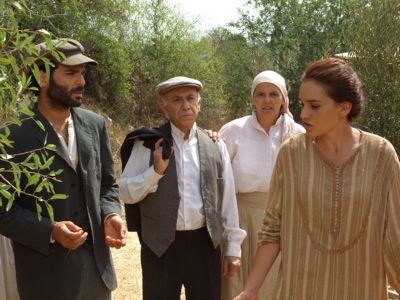 Dan Wolman is one of Israel’s veteran artistic filmmakers. Since his early literary adaptation, My Michael, based on a novel by Amos Oz, he has produced only auteur films (scripted and directed by the filmmaker). His latest film Valley of Fortitude (Gei Oni), which recently opened in theaters in Israel, is another adaptation, based on the best-selling historical novel by Shulamit Lapid.
Dan Wolman is one of Israel’s veteran artistic filmmakers. Since his early literary adaptation, My Michael, based on a novel by Amos Oz, he has produced only auteur films (scripted and directed by the filmmaker). His latest film Valley of Fortitude (Gei Oni), which recently opened in theaters in Israel, is another adaptation, based on the best-selling historical novel by Shulamit Lapid.
The story takes place during the late 19th century, a period of Jewish history in which waves of Jewish migration left Russia and the Ukraine mostly for America. A smaller number of immigrants went to Palestine.
Combining the historical narrative with a love story, the film tells the story of Fanya (Tamar Alkan), a young woman who arrives on the shores of Palestine with a little baby, accompanied by her aging uncle and her emotionally scarred brother. They are running from Russia, having lost all of their family in a terrible pogrom. (more…)
- 3 Comments
December 22, 2010 by Amy Kronish
Personalizing the National
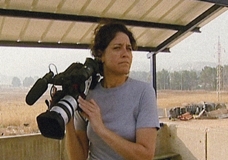 I was recently a guest at the Corrymeela Residential center in Ballycastle, Northern Ireland, where, as one of a team leading workshops on facilitating dialogue groups, I used major clips from Yulie Cohen’s trilogy of documentary films about contemporary Israel. Not surprisingly, Cohen’s unique films which deal with personal reconciliation, both on a national level and a familial level, struck a sympathetic chord with viewers in Northern Ireland and her comments, “peace can come from us” and “I want to try another way”, spoke to their contemporary reality.
I was recently a guest at the Corrymeela Residential center in Ballycastle, Northern Ireland, where, as one of a team leading workshops on facilitating dialogue groups, I used major clips from Yulie Cohen’s trilogy of documentary films about contemporary Israel. Not surprisingly, Cohen’s unique films which deal with personal reconciliation, both on a national level and a familial level, struck a sympathetic chord with viewers in Northern Ireland and her comments, “peace can come from us” and “I want to try another way”, spoke to their contemporary reality.
Cohen’s personal story reflects the story of the nation. She is an Israeli woman who grew up in Tzahala, an upper middle class neighborhood of the aristocratic military elite, dreaming of becoming an officer in the Israel Defense Forces. After serving in the airforce, she became a stewardess for El Al and, in 1978, was wounded in a terrorist attack which was carried out against an El Al flight crew in London. Now, years later, married and the mother of two little girls, she is trying to come to terms with that formative experience. (more…)
- 2 Comments
November 16, 2010 by Amy Kronish
Feminists in Focus: David Grossman on Film
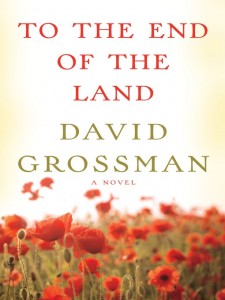 There has been a lot of attention given recently to David Grossman’s newest work of fiction, To the End of the Land, in which the novelist presents a tremendously human drama about the burdens of living in a society at war. And, as we know, Grossman himself paid a most bitter price, having lost his son in the Second Lebanon War of summer 2006.
There has been a lot of attention given recently to David Grossman’s newest work of fiction, To the End of the Land, in which the novelist presents a tremendously human drama about the burdens of living in a society at war. And, as we know, Grossman himself paid a most bitter price, having lost his son in the Second Lebanon War of summer 2006.
But two of Grossman’s previous novels, not focused on issues of war, have recently been adapted into feature films: Someone to Run With and The Book of Intimate Grammar. Although very different from each other, both of these are stories of the challenges of growing up, and both deal heavily with issues of gender in our society. In both stories, the young people are presented with a world that needs changing – in one story the young heroes stand up to the challenge; in the other, the hero succumbs. (more…)
- 1 Comment
October 27, 2010 by Amy Kronish
Feminists in Focus: The Launch of Lilith’s Film Blog!
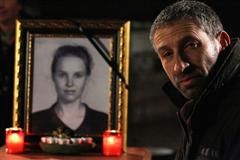 We are so excited to announce the launch of something new, special, and unique to Lilith online: our new feature column on the Lilith blog, Feminists In Focus: Film News and Reviews. In this series, we’ll be bringing you incisive film commentary and context from fabulous (and feminist!) film critics. You’ll get a fresh perspective on films playing right in your area, and leads to movies so rare–or so new–that they haven’t even been screened yet at your local indie film festival.
We are so excited to announce the launch of something new, special, and unique to Lilith online: our new feature column on the Lilith blog, Feminists In Focus: Film News and Reviews. In this series, we’ll be bringing you incisive film commentary and context from fabulous (and feminist!) film critics. You’ll get a fresh perspective on films playing right in your area, and leads to movies so rare–or so new–that they haven’t even been screened yet at your local indie film festival.
For our inaugural post, we present a thought-provoking review from Amy Kronish, who writes and lectures widely on Israeli cinema. She served for 15 years as the Curator of Jewish and Israel Film at the Jerusalem Cinematheque – Israeli Film Archive, and more recently directed coexistence programs at the Jerusalem International YMCA. She is the author of two books on Israeli Film– World Cinema: Israel (1996) and Israeli Film-A Reference Guide (2003). Born and bred in the United States, she has an MA in Communications from NYU and has lived in Jerusalem since 1979. She blogs at www.israelfilm.blogspot.com.
Read on, enjoy, and talk back! We’re eager to know what you’re focusing on in the world of film.
The Human Resources Manager
Directed by Eran Riklis (Israel, 2010)
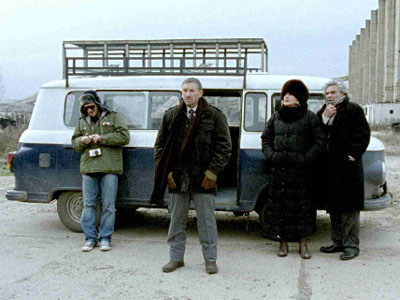 At a time when we’re seeing many films about dislocation and migrant labor, along comes a new film on the subject that is actually an atonement for society’s treatment of the migrant workers in our midst. The Human Resources Manager, directed by Eran Riklis, is not the ordinary migrant worker story. From the opening sequence we know Yulia has been murdered by a suicide bomber, and her life is now proof that migrant workers are just as human as anyone else; in fact, they can even be just as “Israeli” as any other Israeli, when it comes to the ever-present threat of death. (more…)
At a time when we’re seeing many films about dislocation and migrant labor, along comes a new film on the subject that is actually an atonement for society’s treatment of the migrant workers in our midst. The Human Resources Manager, directed by Eran Riklis, is not the ordinary migrant worker story. From the opening sequence we know Yulia has been murdered by a suicide bomber, and her life is now proof that migrant workers are just as human as anyone else; in fact, they can even be just as “Israeli” as any other Israeli, when it comes to the ever-present threat of death. (more…)
- No Comments
 Please wait...
Please wait...